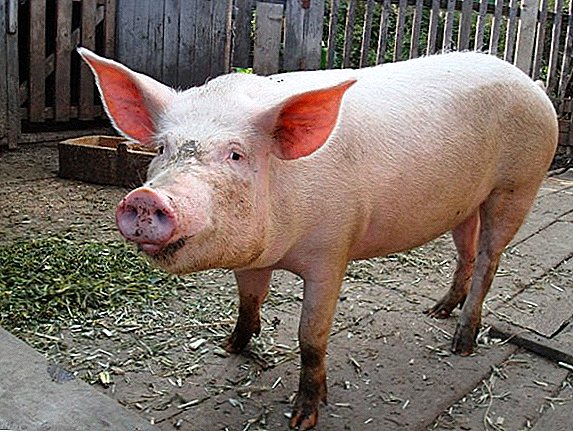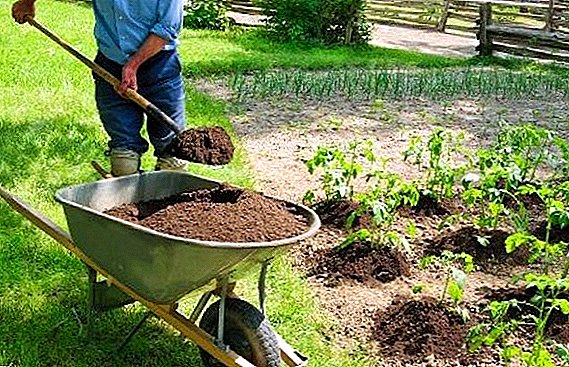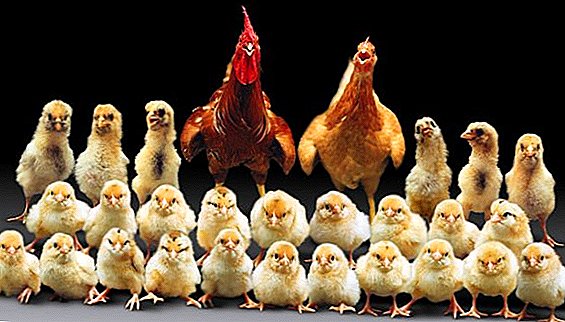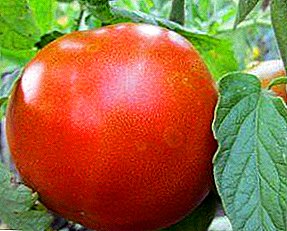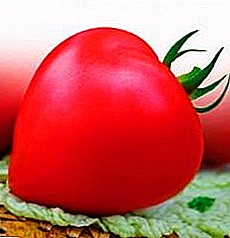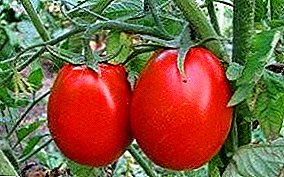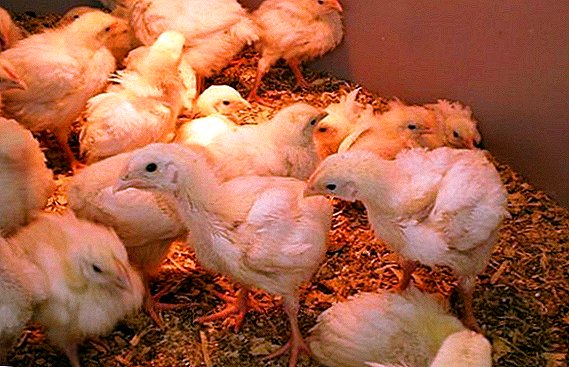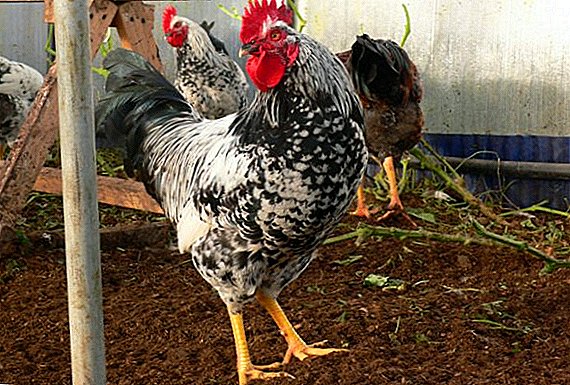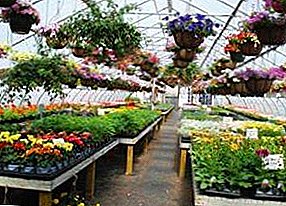
Greenhouse - house for plants and workplace gardeners. Both should be comfortable in it. That is why the arrangement of polycarbonate greenhouses inside should create favorable conditions for growth of the fructification of the cultures planted in it.
No less important are the comfortable conditions for the person serving these cultures.
Arrangement of the interior of the greenhouse
Targets and goals:
- creating an optimal microclimate for plants: humidity, temperature, lighting and ventilation;
- organization of a convenient workplace;
- rational use of space.
Interior planning
So, one of the main issues in the device of the internal space is how to make the beds in a greenhouse from polycarbonate. This is the first thing you need to think about at the stage of creating drawings. From how they will be located, yield depends - And this is the main task of the gardener.
The location of the beds in the greenhouse depends on its size and locationon which it is located. Possible options:
- two ridges with 1 passage between them;
- three ridges with 2 aisles;
- cross beds.
If financial opportunities allow, the greenhouse is calculated on three beds. Moreover, the average bed may be wider than the side. It can be accessed from two sides, so it can be made 1.5 m wide.
Plot relief can be with a slope, and this also affects the location of landings. In this case, it is advisable to arrange the beds across the structure. This will help preserve the light regime for plants and will not allow water to leave the beds down the slope.
Device beds and passes
 Beds in the greenhouse must be raised above ground level at 20-30 cm and fenced.
Beds in the greenhouse must be raised above ground level at 20-30 cm and fenced.
This will facilitate the care of plants, will increase the fertile layer of soil and prevent the fall of land from the beds to the paths.
Material that can be used for the sides of the beds:
- Tree. It can be boards, timber and small diameter logs.
The disadvantages of this fence:- fragility - wood rots under the influence of moisture;
- The use of antiseptics for impregnation may harm plants.
- Brick, concrete or stone. The most durable material, but the arrangement of the beds will take much more time. But he will serve more than a dozen years.
- Flat slate or polymeric materials, resistant to aggressive environment and biological effects.
Often, fences are sold with a polycarbonate greenhouse.
Greenhouses always have high humidity, so you should think about what they will be covered tracks. They should not be slippery.
The best coverage options:
- thick rubber;
- geotextiles;
- Deking (garden parquet).
Budget options:
- small gravel with sand;
- paving slabs;
- brick;
- roofing material with boards laid on top.
Do not forget about aesthetics. It is much more pleasant to work in a beautiful and clean interior space.
Polycarbonate greenhouse partition
The need for them arises when next side by side not quite friendly cultures. For example, cucumbers and tomatoes, which have completely different requirements for temperature and humidity.
It will harmoniously fit into the interior of the greenhouse and will reliably fence off the beds. It is possible to install the same partition with an open doorway.
This option is better to use when there are tomatoes in the greenhouse that need constant air movement in the greenhouse.
If it is not possible to install a polycarbonate partition, it can be made of a film stretched over a frame.
The main condition for installing any partition is to provide sufficient ventilation in the room for prompt adjustment of temperature and humidity.
 This will require additional vents or a forced ventilation system.
This will require additional vents or a forced ventilation system.
"Storeroom" in the greenhouse
Agree, it is not very convenient to wear it from home every time. inventory to work with plants. Hence, it should be provided storage place. At the stage of creating a drawing, you can calculate the place under the "hallway".
This may be a small platform where there will be buckets, watering cans, a shovel, a rake, fertilizers and everything else that is necessary for the care of plants.
It is especially convenient to do this when plants are grown not in the ground, but on racks. The least convenient levels - lower and upper - can be adapted for these purposes.
A photo
In the photo below: the device greenhouses inside of polycarbonate, how to arrange the beds in the greenhouse of polycarbonate





Equipment in the greenhouse
To facilitate the work and create ideal conditions for plants, it can be equipped technical devices and equipment. Its minimum set is as follows:
- additional lighting;
- irrigation system;
- forced ventilation.
For additional lighting wiring is required, just like for automatic ventilation. The pleasure as a result turns out expensive, but also productivity rises essentially.
High costs can be avoided if you do it yourself.
Drip irrigation system
One of the ways to organize watering in a polycarbonate greenhouse is a drip irrigation system.
It will require hoses and several plastic tees. The hoses will be located on the beds, and outside they can be connected to an electric pump.
If there is no such one on the plot, a garden barrel, set at a height of 1.5-2 m, will be suitable. You will only have to spend money on a controller with a timer, which is installed under the tap. 
Ventilation
For automatic opening of the vents in the greenhouse instead of expensive equipment is quite suitable hydraulic thermal drive. It will be triggered when the temperature rises above a predetermined threshold. Such a device will not require the greening of the greenhouse.
Lighting and heating greenhouses
If the greenhouse is used for the winter growing of vegetables, electricity in it is necessary. The specifics of the installation of electrical networks and equipment is that it must be carefully isolated, since there is always high humidity in the greenhouse.
For heating it is best to use infrared heaters - the latest generation of technology miracles. The system is good for its efficiency and the fact that the plants under them never overheat.
For lighting used fitolampy.
Growing crops on shelves
If the greenhouse is designed for growing low-growing plants, it is advisable to equip it with racks. It is convenient to place on them boxes with seedlings, pots with flowers or plant strawberries in the autumn-winter period.
Shelves are installed instead of beds and assume a similar layout in the greenhouse. This method of planting allows you to save space by planting a much larger number of plants. Most often, the racks are used for growing strawberries.
 The advantages of shelving:
The advantages of shelving:
- convenience of caring for plants;
- space efficiency;
- yield increase;
- heating savings.
Install racks can be above the beds. The lower tiers are planted with crops that will tolerate light shading from the shelves, on the upper tiers are pots or boxes with more light-loving plants.
Making racks do it yourself
Recommendations on the height of the racks can not be, each owner builds them under their height. But the width may be similar to that which the beds are made in the greenhouse. If they stand in three rows, then the width of the shelves can be 80 - 150 - 80.
It is possible to simply determine the height of the main shelf - measure the height of the working kitchen table. If it is convenient for you to cook on it, then it will be comfortable to care for the plants.
The most widely used rack material is wood. It can withstand quite large loads and is cheaper than the rest. For racks used timber, for shelves - boards with a minimum thickness of 4 cm.
All parts of the wooden structure must be treated with a special impregnation that protects against moisture, and painted. Shelves should have sides with a height of 15 to 20 cm. The bottom of the shelf is lined with boards with a gap between them up to 5 mm so that water does not accumulate in them.
The disadvantages of a wooden structure:
- the need for continuous processing and painting;
- big weight of a design;
- inability to use with drip irrigation system.
A much more acceptable option is the construction of metal and plastic. The assembly principle is the same as the wooden shelving. For racks used metal or steel profile. It also requires anti-corrosion coating and painting.
The cost of the rack will be higher, but it has the advantages:
- durability;
- ease of construction - if necessary, you can make a permutation in the greenhouse;
- the ability to use any irrigation system.
If there is no bed under the shelving, you can arrange another shelf for storing inventory and fertilizers and chemicals for pest control. In general, the number of shelves depends on the organization of access to them. If it is possible to use the stairs in the greenhouse, then they can be made in several tiers.
Internally, greenhouse equipment is no less important than what material it is made of and how it is made. Having arranged it properly, you will receive not only a good harvest, but the pleasure of working in it. And we hope that we have answered the question of how to equip the greenhouse inside of polycarbonate.



